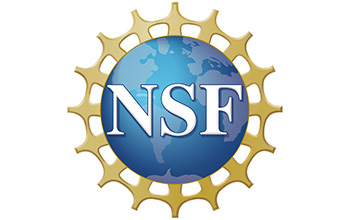A Catalyst for Intersectional Gender Equity in STEM
A National Science Foundation Supported Initiative
The ADVANCE Catalyst project at UNO aims to increase the participation and advancement of female-identified and underrepresented faculty in STEM by addressing the policies, practices, and processes at UNO that can better support gender equity for faculty. We recognize that many of the “quick fixes” for gender equity have already been implemented on UNO’s campus; however, underrepresented faculty have yet to experience gender parity on a range of metrics. Using an intersectional approach, our Catalyst findings will further explore the individual health and well-being outcomes and mechanisms of organizational culture that are preventing faculty from achieving institutional success.

Project Team
UNO Office of Diversity, Equity, Access, and Inclusion
- Dr. A.T. Miller
- Pedro Okoruwa
UNO Center for Public Affairs Research
- Dr. Morgan Vogel
- Dr. Josie Schafer
UNO Department of Gerontology
- Dr. Janelle Beadle
UNO School of Interdisciplinary Informatics
- Dr. Kate Cooper
Internal Steering Committee Members
UNO College of Arts and Sciences
- Dr. Melanie Bloom
- Dr. Roni Reiter-Palmon
- Dr. Abigail Folberg
- Dr. Jane Liu
- Dr. Kelsey Medeiros
UNO College of Communication, Fine Arts and Media
- Dr. Michael Hilt
UNO College of Information Science & Technology
- Dr. Martha Garcia-Murillo
- Dr. Deanna House
UNO College of Public Affairs and Community Service, NASA Nebraska Space Grant, Aviation Institute
- Ms. Michaela Lucas
UNO College of Education, Health, and Human Sciences, STEM TRAIL Center
- Dr. Nealy Grandgenett
- Dr. Chris Moore
UNO Center for Faculty Excellence
- Dr. Connie Schaffer
UNO Office of Academic Affairs
- Dr. Candice Batton
UNO Office of Research & Creative Activity (STEM focus)
- Dr. Sara Myers
UNO Chancellor’s Commission on the Status of Gender Equity
- Le Racha Simon
NSF at a Glance
The National Science Foundation (NSF) is an independent federal agency created by Congress in 1950 "to promote the progress of science; to advance the national health, prosperity, and welfare; to secure the national defense..." NSF is vital because we support basic research and people to create knowledge that transforms the future. Learn more.